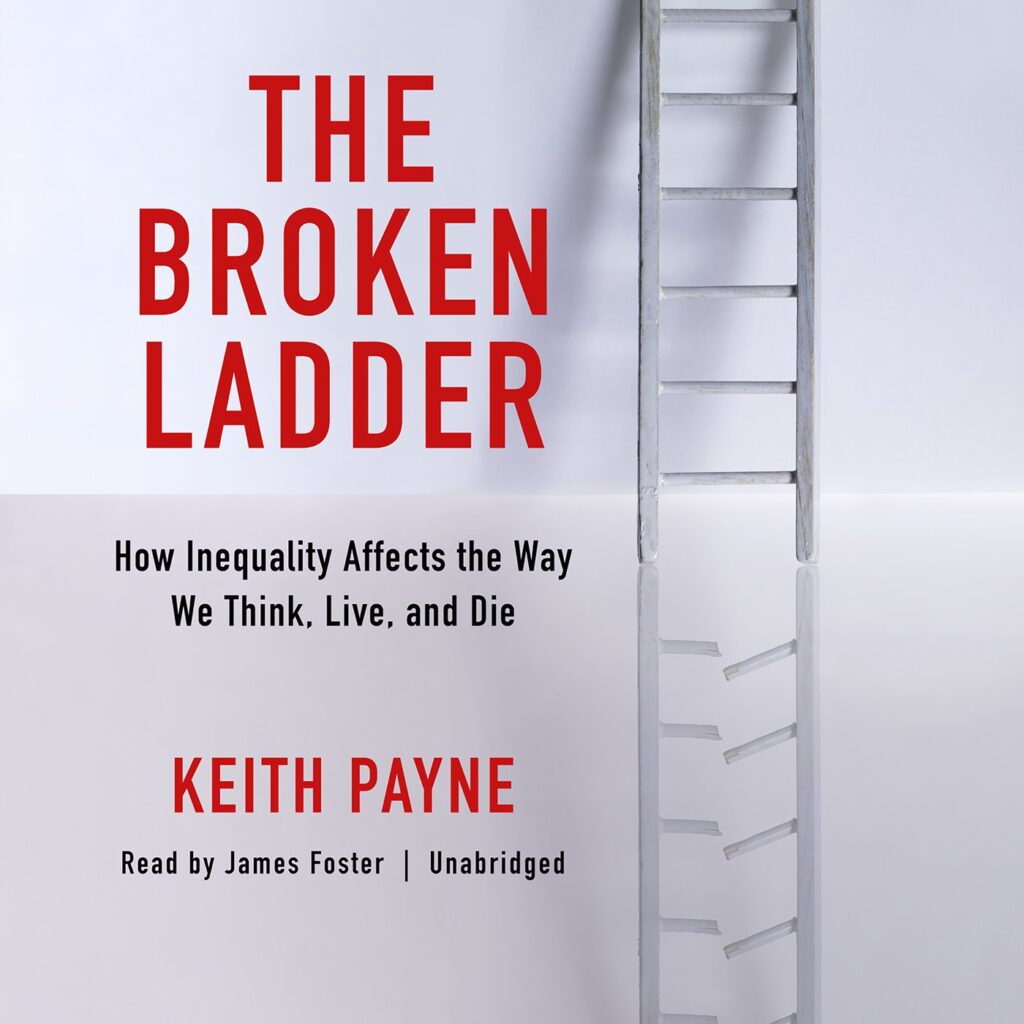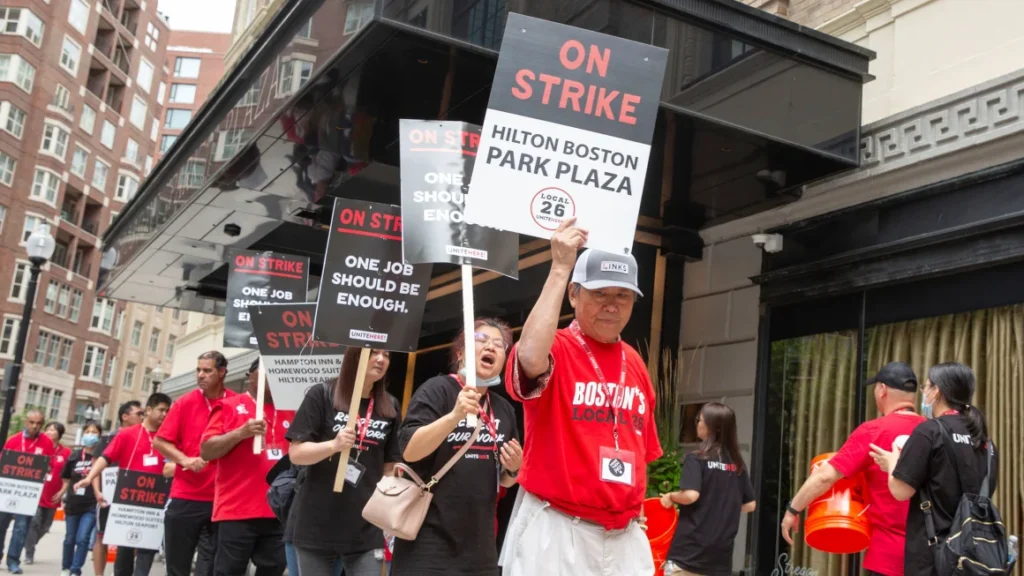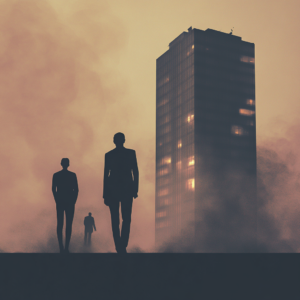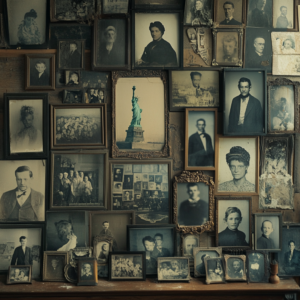
Some of the key takeaways that brought the article below to light come from Keith Payne’s ground-breaking book about how the psychological stress of simply being aware of inequality has real material consequences.
How Awareness of Inequality Shapes Perception and Behavior
Economic disparities are increasingly visible, the psychological impacts of inequality have become a focal point for researchers and policymakers alike. Even when material circumstances remain unchanged, simply becoming aware of inequality can dramatically alter one’s self-perception and view of others. This awareness, which can be just as impactful as objective inequality, shapes how individuals navigate their social world, often with profound emotional and behavioral consequences.
The Airplane Analogy: Status Hierarchies in Everyday Life
A compelling example of how status hierarchies manifest in everyday life can be found in the layout of an airplane. The stark division between first class and economy seating is more than just a matter of comfort; it symbolizes a broader societal hierarchy. This physical representation of inequality can trigger a range of psychological and behavioral responses among passengers.
Studies have shown that airplanes with first-class cabins experience higher rates of “air rage” incidents compared to those without such divisions. The mere sight of a privileged few seated in luxury while the majority endure cramped conditions can provoke feelings of anger, frustration, and resentment. This is particularly true for economy passengers who have friends or acquaintances seated in first class, which amplifies feelings of exclusion and inferiority.
The psychological impact of witnessing such hierarchies is not confined to airplanes. It extends to various aspects of life where inequality is visible, from workplaces to social settings. The pain of not belonging to a higher status group, even without a direct connection to those in it, can be a source of deep emotional distress.
The Power of Upward Comparisons
Human beings have a pronounced tendency to make upward comparisons, assessing their own status in relation to those who have more rather than those who have less. This inclination can have both adaptive and painful consequences. On one hand, upward comparisons can motivate individuals to strive for better circumstances, driving ambition and effort. On the other hand, these comparisons can also lead to feelings of inadequacy, envy, and dissatisfaction.
This dynamic is particularly pronounced in societies with extreme inequality. The concept of the “broken ladder” aptly describes how difficult it can feel to climb the status ladder when the gaps between rungs are too wide. For those at the lower end of the economic spectrum, the climb can seem insurmountable, fostering a sense of hopelessness. Even for those who are relatively well-off, upward comparisons can diminish the sense of achievement, as the goalposts for success continually shift higher.
The Relative Nature of Poverty and Opulence
Feelings of poverty and wealth are not solely determined by objective financial facts but are heavily influenced by relative comparisons. A person’s perception of their own economic status is often shaped by how they stack up against others in their community or peer group. For instance, someone with a comfortable income might still feel “poor” if they live in a neighborhood where others are significantly wealthier. Conversely, a person with modest means might feel wealthy in a less affluent context.
This relativity underscores the psychological complexity of inequality. It is not just the actual material differences that matter, but also how these differences are perceived and internalized. The awareness of being at a disadvantage, even when one’s basic needs are met, can lead to a range of negative emotions, including shame, anxiety, and low self-esteem.
The Hidden Costs of Inequality
Inequality, whether experienced directly or witnessed from afar, carries significant psychological costs. The awareness of disparities in status and wealth can reshape how individuals see themselves and others, often leading to feelings of frustration, resentment, and inadequacy. The tendency to make upward comparisons exacerbates these feelings, particularly in societies where the gap between the rich and poor is vast.
In this context, the metaphor of the “broken ladder” is powerful. It encapsulates the sense of disillusionment and frustration that arises when the climb towards higher status seems impossible. As societies grapple with the challenges of inequality, it is crucial to recognize not only the material impacts but also the deep psychological scars it leaves behind. Addressing these issues requires a holistic approach that considers both the economic and emotional dimensions of inequality.

Hospitality Industry’s Massive 2024 Labor Day Strike
In the hospitality industry, workers are confronted with extreme inequalities on a daily basis, as they interact directly with unusually wealthy clientele in settings like high-end hotels, resorts, and luxury restaurants. This proximity to wealth, often while earning a modest wage, creates a unique psychological strain for workers. Whether it’s serving opulent meals, attending to lavish hotel rooms, or providing personalized services on cruise ships, hospitality employees face an ongoing comparison between their own economic status and that of the guests they serve. This constant exposure to wealth can trigger feelings of frustration, inferiority, and stress, as workers witness a level of opulence that seems far removed from their own lives.
This dynamic can be understood through the psychological framework of upward comparisons, where individuals assess their own status relative to those who have more. For hospitality workers, the presence of affluent guests creates a daily reminder of the disparity between their financial reality and that of the customers they serve. This exposure to extreme wealth can lead to impulsive behaviors, stress, and even resentment, especially as workers see the immense privileges enjoyed by guests while grappling with stagnant wages and demanding work conditions.
In 2024, this imbalance contributed to widespread dissatisfaction in the hospitality industry, fueling Labor Day strikes where 10,000 workers from major hotel chains like Hyatt, Marriott, and Hilton walked off the job. The strike was not just about wages and working conditions, but also about the psychological toll of serving wealthy guests in an industry that frequently undervalues its workers. The disparity between the lives of hospitality employees and the affluent customers they cater to has become a driving force behind demands for fairer treatment, better pay, and more respect for the essential roles these workers play in the luxury and service economy. The Labor Day strikes reflected a growing recognition of the need to address not only material inequalities but also the emotional and psychological costs borne by those who work in such proximity to wealth.





